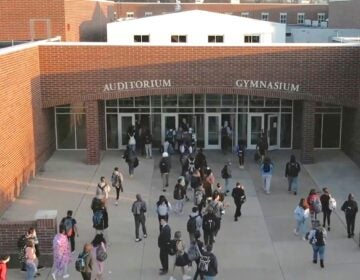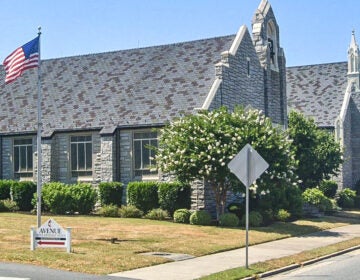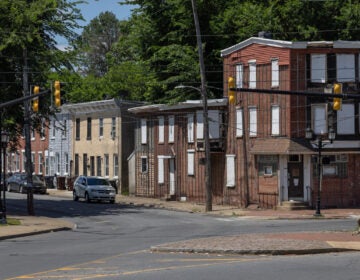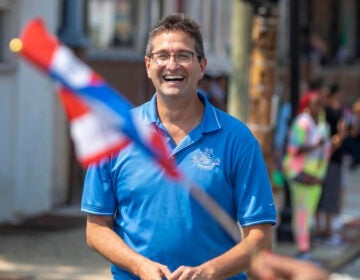Delaware group invests $570,000 in grants to strengthen Latino communities and expand education, jobs and more
More than 25 nonprofits will use new funding from the Arsht-Cannon Fund to improve opportunities for Latino Delawareans.
Listen 1:28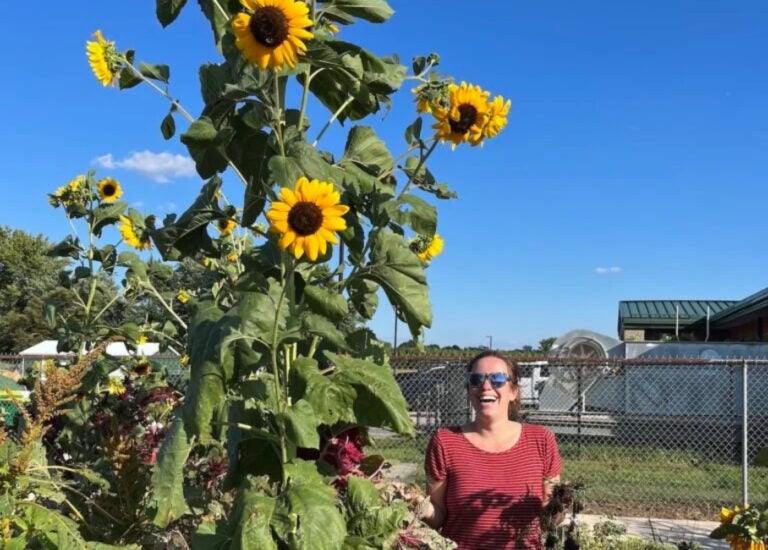
File: An educator with the nonprofit School Nutrition AgriCulture teaching students on the North Georgetown Elementary school garden in 2023. SNAC has been awarded $20,000 to expand its hands-on school garden curriculum in Georgetown, where Latino families make up the majority of the student population. (Courtesy of SNAC Garden Foundation)
What are journalists missing from the state of Delaware? What would you most like WHYY News to cover? Let us know.
More than two dozen nonprofits across Delaware are receiving new support this year to expand their impact on Latino communities. 2025 marks the 20th year of investing in the Latino community for the Delaware Community Foundation. The group has awarded $570,000 in grants to 25 organizations through its Arsht-Cannon Fund, a donor-advised fund created to address educational, health and economic gaps for Hispanic Delawareans.
“About 25 years ago, Samuel and Roxana Arsht created a donor-advised fund at DCF, which was supposed to benefit the people of Delaware and their needs,” said Jennifer Fuqua, director of community partnerships and Hispanic initiatives at DCF. “Their daughter Adrienne Arsht decided to … make the fund specifically focused on the needs of Hispanic communities in Delaware because, as you know, sons and daughters of immigrants … They wanted to benefit this newcomer community in the state and provide specifically opportunities that led to education, wealth creation, workforce development.”
This year, demand for funding was the highest it’s ever been.
“We saw twice as many applications this year as per usual,” Fuqua said, citing recent budget cuts and increased need among nonprofit organizations. “This is a really different year, just because of the different kinds of cuts that different organizations have seen.”
“I hope that part of what we see is that the organizations, but more importantly, the communities that they serve, are able to be resilient through the programming that is offered, able to withstand whatever other changes there might be that have been sort of coming through federal and state funding and where there have been cuts made,” she added.
The grants span all three counties and touch every stage of life — from infancy to adulthood. The funds will support organizations working on language learning, family literacy, academic and arts programming, youth development, small business growth, advocacy and leadership training and health-related education and coaching.
SNAC brings school gardens and food education to Georgetown
In Sussex County, one of this year’s recipients is the School Nutrition AgriCulture. The nonprofit was awarded $20,000 to expand its hands-on school garden curriculum in Georgetown, where Latino families make up the majority of the student population.
“We are a school garden program in Sussex County, and we are very focused on making sure that students have equitable access to garden programming,” said Shandra Furtado, SNAC’s executive director. “For us, that means supporting schools that typically don’t have the resources to keep a garden program thriving … This is normally schools who are either understaffed or have a lot of students or just are struggling with literacy, reading, science, or struggling with outside issues.”
SNAC works with schools like North Georgetown Elementary and now at Georgetown Middle School, ensuring every classroom participates in outdoor lessons at least four times per semester, tied to their grade-level curriculum.
The Arsht-Cannon grant is helping SNAC complete the development of its middle school program and hire a Spanish-speaking educator who can also engage in community outreach with parents.
“This grant is helping us support our educators in the Georgetown area, but then we also are adding a community outreach component … to kind of get parents more involved, to help parents understand more about the resources that we provide and outside of just the school garden program,” Furtado said. “We have plants in the spring for parents to buy from our plant sale, and so they can garden at home and also learn about how to garden at home to bring the gardening home with the students.”
Furtado notes that the plant sale also helps create a farmers market atmosphere in Georgetown, a community that otherwise has limited access to fresh produce. The nearest farmers market is located in Lewes, which can present transportation and distance barriers for families in Georgetown.
“Georgetown is kind of a food desert,” Furtado said. “There’s not a lot of fresh food options … The Lewes Farmers Market is not accessible in terms of driving, not everyone in Georgetown can really access local food easily. We want to really bring a local food culture back into the community and also get people who want to eat healthy, excited about it, and not just feel like they need to spend a lot of money to buy food and eat healthy.”
LYTE expands college and career access for Latino youth
Another grantee, Leading Youth Through Empowerment, received $30,000 to support its education and career development program serving students from eighth grade through college.
“We typically meet students in middle school. We help kids be well prepared for rigorous high school, they take after school and summer advancing classes with us,” said Sean Boyd, development and finance director for LYTE. “During high school, we provide support, that includes tutoring, class planning. So not only do we do class schedules and tutoring and we prepare students for college.”
Since partnering with the Arsht-Cannon support program, the number of Latino students served has grown significantly, now reaching approximately 160. LYTE believes this additional support will help guide even more Latino students toward higher education opportunities and provide greater resources for staff working with these students.
“So that $30,000 is just helping a number of students go through our programming,” he said. “It costs about $2,500 per student per year to go through our programming … so that $30,000 is going to be directly spent on our staff members that support and guide and advise.”
By expanding access to education, workforce development and community resources, the foundation hopes these grants will foster greater economic contributions, leadership and resilience within Delaware’s growing Latino community.

Get daily updates from WHYY News!
WHYY is your source for fact-based, in-depth journalism and information. As a nonprofit organization, we rely on financial support from readers like you. Please give today.



